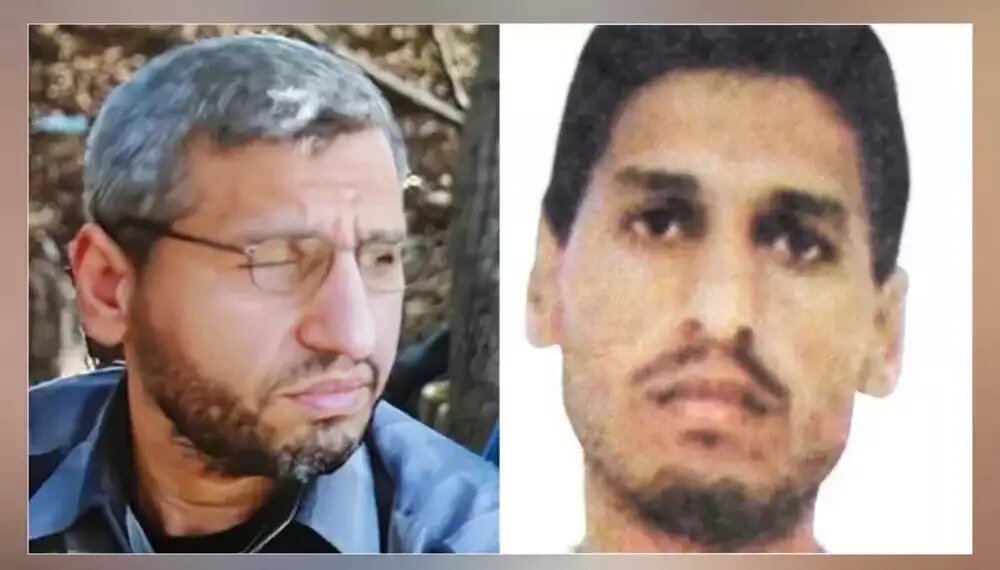How Mohammed Deif became the symbol of Palestinian resistance

TEHRAN- Hamas military chief Mohammed Deif has achieved enormous popularity among Palestinian people in the Gaza Strip.
Deif has been the leader of Hamas’ military wing, al-Qassam Brigades, since 2002.
Israel put him on its so-called ‘most wanted’ list nearly three decades ago.
The regime has made several attempts on his life. Deif’s ability to evade Israeli intelligence services has earned him the nickname "the man with nine lives" as he has escaped multiple assassination attempts.
His real name remains unknown. However, media outlets suggest that his name is Mohammed Diab Ibrahim al-Masri.
Deif is an Arabic moniker that translates literally to "guest". It refers to the fact that he doesn’t stay more than one night in the same place to avoid being caught by the Israeli regime.
Sense of belonging
He was born in the Khan Yunis refugee camp in southern Gaza in the 1960s and studied at the Islamic University of Gaza. Deif has lived in Gaza and educated his children there.
He joined Hamas in the late 1980s with the help of Yahya Ayyash – known as "the Engineer". Ayyash, who was assassinated by Israeli intelligence services in 1996, was one of the main explosive experts of the resistance group with whom Deif was very close.
Israel regards Deif as a direct and constant threat amid the attacks he has orchestrated against the regime for about 30 years.
Gaza subway
Deif masterminded the construction of underground tunnels allowing Hamas fighters to launch attacks inside Israel from Gaza.
Hamas says it has built 500 kilometers (311 miles) worth of tunnels under the Gaza Strip. Israel has dubbed the tunnel network the "Gaza Metro".
In fact, he applied lessons from the second intifada in the early 2000s. In the wake of the uprising, Israel tried to fortify the border with Gaza with walls. Digging tunnels for resistance fighters to go into Israel was a scheme which foiled the regime’s plan.
From invincible to vulnerable
Operation Al-Aqsa Storm, which was carried out by Hamas in southern Israel on October 7, has been the most successful military operation in the history of Palestinian resistance.
Deif was behind the military operation that caught Israel off guard and shattered the myth of the regime’s invincibility.
Hours after the operation, Deif released a video citing Israeli atrocities for conducting the unprecedented attack.
“In light of the continuing crimes against our people, in light of the orgy of occupation and its denial of international laws and resolutions, and in light of American and Western support, we’ve decided to put an end to all this, so that the enemy understands that he can no longer revel without being held to account.”
A professor of politics at Al-Azhar University in Gaza said in October, “Even before this (Operation Al-Aqsa Storm), Deif was like a sacred personality and very much respected both within Hamas and by the Palestinians”.
Mkhaimar Abusada told The Financial Times at that time that Operation Al-Aqsa Storm had turned Deif into a figure “like a god to the young.”
Reports say Deif has run the Qassam brigades from a wheelchair in the last two decades following his injury in an Israel air raid. The orchestration of Operation Al-Aqsa Storm by a man who has been confined to a wheel chair has exposed Israel’s extreme vulnerability.
Rejecting compromise
Deif like many Palestinians including founders of Hamas rejected the Oslo Accords signed in the early 1990s. He views the move as a betrayal of the Palestinian resistance and a plot to replace Israe with a Palestinian state.
Yasser Arafat, chairman of the Palestinian Liberation Organization (PLO), signed the US-mediated Oslo Accords with Israel in 1993, which ceded many Palestinian lands to the regime.
Despite signing the deal, no progress was made toward achieving Palestinian statehood.
Frustration and anger rose among Palestinians on the backdrop of Israel’s refusal to abide by the Oslo Accords and end the occupation.
It was one of the main reasons that sparked the Second Intifada in 2000 which lasted until 2005.
Deif, who joined al-Qassam Brigades following its creation shortly after the Oslo Accords, was also part of a series of Palestinian attacks against Israelis during the Second Intifada.
Enduring legacy
Deif has captured the hearts of Palestinians as the Palestinian Authority (PA), which was established in 1994 as a product of the Oslo Accords, remains widely unpopular.
Palestinian Authority President Mahmoud Abbas, who has led the PA for nearly two decades, has faced widespread criticism over his inaction toward Israeli crimes against Palestinians both in the West Bank and in the Gaza Strip.
Palestinians have accused Abbas of rendering the Palestinian Authority into a toothless entity as Israel has expanded its settlements and intensified deadly violence.
Abbas, also known as Abu Mazen, has been under mounting pressure over his position toward Operation Al-Aqsa Storm.
In mid-October, the Wafa news agency cited Abbas as saying that “Hamas's policies and actions do not represent the Palestinian people, and the policies, programs and decisions of the (Palestine Liberation Organization) represent the Palestinian people as their sole legitimate representative."
His comments infuriated Palestinians who have been subjected to decades of Israeli atrocious crimes.
The Palestinian Authority’s security forces have also attacked protesters who have taken to the streets of the West Bank to vent their anger at the policies adopted by Abbas toward Palestine, and the Gaza war.
Deif’s impact on Palestinians will be felt for generations to come; a testament to the power of his character and the significance of his accomplishments.
His unwavering dedication to the Palestinian cause has also inspired people to follow in his footsteps.
It is crystal clear that Deif’s legacy will outlast him even after he is gone.
Leave a Comment